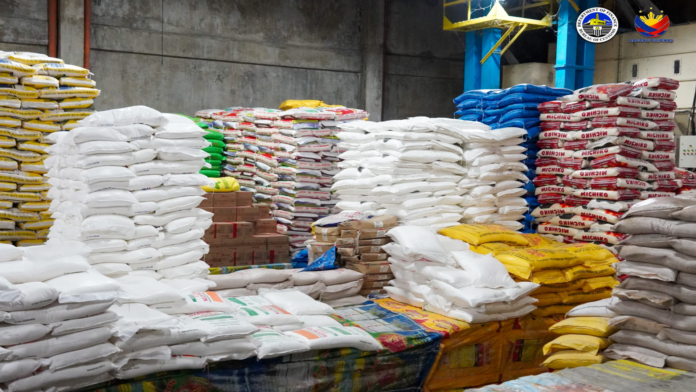President Ferdinand R. Marcos Jr. has certified as urgent a bill redefining and imposing stiffer penalties against crimes of agricultural economic sabotage, Malacañang announced Thursday.
In a statement, Communications Secretary Cheloy Garafil confirmed that Marcos on Wednesday certified as urgent the approval of Senate Bill (SB) 2432, a measure that defines the crimes of agricultural economic sabotage.
In a letter addressed to Senate President Juan Miguel Zubiri, Marcos stressed the need for the immediate enactment of SB 2432 “to promote the productivity of the agriculture sector, protect farmers and fisherfolk from unscrupulous traders and importers, and ensure reasonable and affordable prices of agricultural and fishery products for consumers.”
This, as Marcos lamented that the country is now beset by rising prices and shortages in agricultural products, “partly due to the nefarious acts of smuggling. hoarding, profiteering, and cartel.”
The proposed measure against agricultural economic sabotage is among the expanded Common Legislative Agenda discussed during the third Legislative-Executive Development Advisory Council (LEDAC) meeting at Malacañan Palace in Manila on Wednesday.
The bill is now pending in the period of interpellations in the Senate, while a Technical Working Group is currently finalizing the version of the House of Representatives.
Garafil said the bill, which would repeal Republic Act (RA) 10845 or the Anti-Agricultural Smuggling Act of 2016, aims to impose severe sanctions on the nefarious acts of smuggling, hoarding, profiteering, and cartel of agricultural and fishery products.
She said the sanctions include a penalty of life imprisonment and a fine thrice the value of the agricultural and fishery products subject of the crime as economic sabotage.
Under the bill, the acts of agricultural smuggling, hoarding, profiteering and cartel as economic sabotage are committed when the value of each agricultural and fishery product subject of the crime is at least PHP1 million, using the Daily Price Index, under Section 19 of the proposed law, computed at the time the crime was committed.
The proposed measure also creates an Anti-Agricultural Economic Sabotage Council headed by the President or his designated permanent representative to ensure the proper and effective implementation of the proposed law.
The proposed council will have the power to direct speedy investigation and prosecution of all violators, as well as freeze the violators’ funds, properties, bank deposits, placements, trust accounts, assets and records.
Citing SB 2432, Garafil noted that any government officer or employee found to be an accomplice in the commission of the crime will “suffer the additional penalties of perpetual disqualification from holding public office, exercising the right to vote, from participating in any public election, and forfeiture of employment monetary and financial benefits.”
“When the offender is a juridical person, criminal liability shall be attached to all officers who participated in the decision that led to the commission of the crime, with a penalty of perpetual absolute disqualification to engage in any business involving importation, transportation, storage and warehousing, and domestic trade of agricultural and fishery products,” she said.
“Government authorities also have the right to confiscate the agricultural and fishery products which are subject of the prohibited acts and the properties used in the commission of the crime of agricultural economic sabotage such as, but not limited to, vehicles, vessels, aircraft, storage areas, warehouses, boxes, cases, trunks, and other containers of whatever character used as receptacle of agricultural and fishery products,” Garafil added. (PNA)
Photo credit: Facebook/BureauOfCustomsPH


